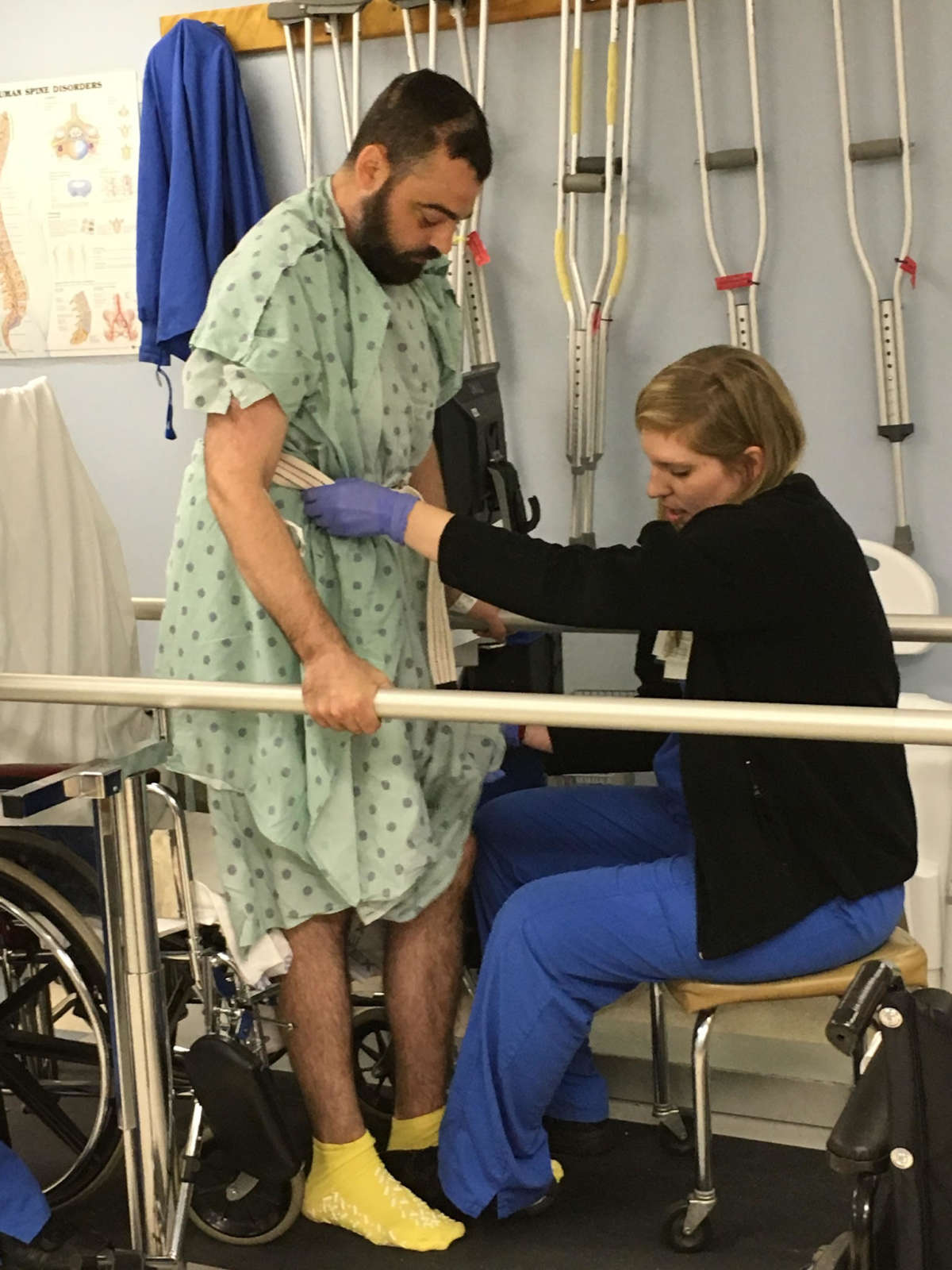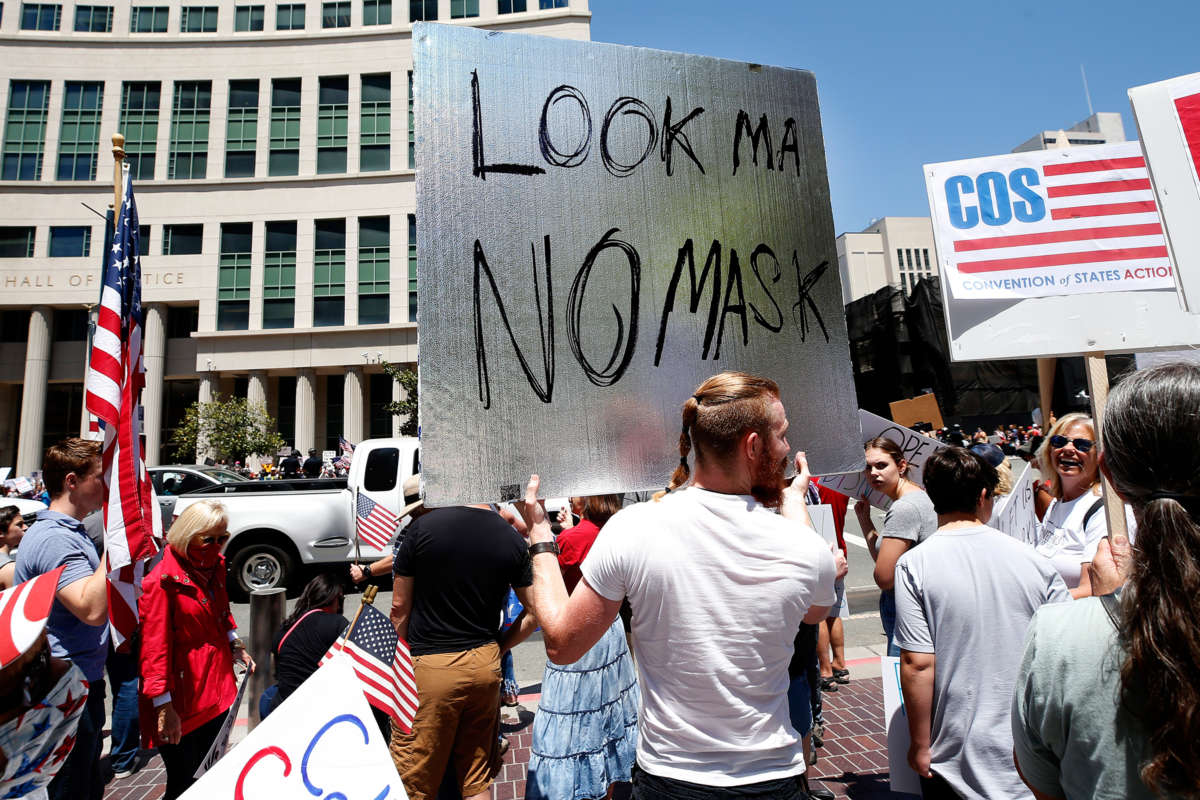Part of the Series
Despair and Disparity: The Uneven Burdens of COVID-19
To become seriously ill is to experience the deconstruction of self, body and world. My trustworthy and reliable body became a threat just before the new year in 2015, when a seizure unexpectedly crumpled my six-foot frame to the floor in our modest second-floor condo. Though seizures persisted, a familiar medical axiom clouded the evidence that was in front of us: When hearing hooves, infer horses, not zebras.
It turns out, I was a zebra.
After several months and a series of specialist office visits, by spring of 2016, I experienced regular focal seizures, sometimes three or more daily, each presenting with dizziness, left-sided paralysis and mild confusion. My ability to “ride them out” coupled with a clinician’s misjudgment when assuring me that, “If there were something seriously wrong with you, you’d be in much worse shape,” kicked the diagnostic can down the road.
Nearly 15 months after the initial onset, the duration, frequency and intensity of these episodes became a risk to my health, and engaging in normal behaviors like driving to work risked the health of others. I urged my general practitioner to take another look. An MRI scan of my brain revealed a seven-centimeter primary brain tumor, roughly the diameter of a baseball. In a flash, my identity transformed from healthy male adult to “a critical result.”
I endured an awake brain surgery to remove the maximal amount of tumor while protecting as much of my eloquent function as possible. Following surgery, I was a wheelchair user, my left hand needed to be taped to the wheelchair to keep it from dangling and being caught in the spokes of the chair, and my once-thin medical chart expanded to include a new diagnosis: the aggressive and incurable brain cancer, glioblastoma.

I was forced to negotiate environments in new and foreign ways; my body is no longer the silent partner in my life, and the world undermines my individualism and redefines my relationships to others cast in the shadow of illness: to my medical teams, my caregivers, to my spouse and friends, and to my communities whose collective actions affect my life in new ways. Like many people with chronic illness and or disabilities, I have a weakened immune system, and if not from the disease itself, its treatment can affect the same end. Hand washing, maintaining immunizations, and isolating friends, family, even our kids away from me are regular actions we take to protect my health — and these are steps during “normal times.”
In the COVID-19 epidemic, negligence of vulnerable populations is a material threat to the lives of the chronically ill and disabled when those in the local community fail to follow public health guidelines. COVID-19 is a salient example of redefining the relationship between an ill person and their community. The pandemic sees a culture war erupt on the battlegrounds of “social distancing.” These guidelines are challenged by those without serious illness who report themselves at low risk of contraction for the deadly virus, and by people embracing the ideology that such mitigation strategies are not worth the damage to the economy and “democratic way of life.” In short, COVID-19 is a recent and illustrative example of the ableism that pervades our society.
Disability advocates and advocates in communities of illness remind the general public that distancing guidelines were enacted to slow the spread of transmission from asymptomatic viral carriers, even those at low personal risk. Mitigation calls on society to exercise its moral imagination and occupy the position of a person at elevated risk for lethal disease, then act accordingly. This line of thought fits neatly into the general advice that to slow the spread of coronavirus, act like you already have it. Each of us is a potential asymptomatic carrier, and so each of us has a responsibility to break the chain of transmission that ultimately threatens the lives of those more vulnerable.
The call to recognize individual commitment to the health of the community reminds us of our collective interdependence. For those who have become seriously ill, recognizing interdependence develops organically through tapping into our social networks for support. Yet with the benefit of recognizing interdependence and support, folks with illness become keenly aware when the edicts of community health are violated, and this presents palpable distress, even when the acceptance of our own diseases are well incorporated into our life narratives.
Imagine that you are living with chronic illness or disability that elevates your risk for contraction of COVID-19, yet brazen disregard of public health measures is perpetrated by those in your general communities. What is dismissed as overreaction by some is understood as a disregard for the health and safety of vulnerable populations by others. Caring for kids through these guidelines complicates calls for social distancing. Parents and guardians who do not enforce distancing guidelines have pressed my spouse and I into conversations with our young kids to explain that we are acting to protect my health and the health of the community — a complicated topic for our 8-, 6- and 4-year-old — and yet their friends from the neighborhood are gathered only a few doors down.
This may be no big deal to their families, but for those of us with elevated risk who must console upset kids and deflect their accusations that we’ve violated a basic norm of fairness, the playdate is a clear message that, “We are not protecting you, much less valuing your life and the emotional health of your kids.” That is a big statement, but it goes some way toward emphasizing the message that we each must act in recognition of our communities.
In the advanced cancer community where I participate with peers, psychological distress is amplified by the closure of outpatient medical services and elective procedures. A person undergoing active treatment experiences care disruption for the good of public health. I am ordered for MRI scans every 12 weeks to monitor the residual cancer that was left in my brain after surgery — the disease grows like tentacles and is difficult to completely remove surgically. Unfortunately, a recent scan showed a concerning area that requires close follow-up. Given hospital guidelines in light of COVID-19, I am unable to schedule the imaging originally planned for May. Sitting with this uncertainty creates added anxiety.
Each of us weighs some risk to our lives against the benefit of social distancing. For the cancer patient to miss an immunotherapy infusion or radiation treatment, the risk is disease progression. For nondisabled and people experiencing good health, the risk is economic — say, to food and housing security. There is no race to the bottom to determine which risk is worse: to life or to livelihood, but in the illness community, the sense that our lives are threatened is palpable.
When mitigation strategies disrupt care, and a person with chronic illness is thrust into existential distress by adherence to public health recommendations, the sting of watching nondisabled and non-ill people ignore distancing guidelines strikes a deep blow to people with disabilities and chronic illness. Organizing our lives to maximize participation and ensure the safety of all people is too often viewed as accommodation, something that others must give up or a compromise to be made. Rather than give up our freedom to follow social distancing, I encourage folks to view themselves at the intersection of self, body, and world and recognize that individual health only thrives in the recognition of each. You have an opportunity to commit to community health, acting in solidarity with others — or to shun responsibilities for personal benefit. Let’s embrace the former. In a world dominated by horses, we find joy and meaning in honoring the experience of the zebras.
Join us in defending the truth before it’s too late
The future of independent journalism is uncertain, and the consequences of losing it are too grave to ignore. To ensure Truthout remains safe, strong, and free, we need to raise $44,000 in the next 6 days. Every dollar raised goes directly toward the costs of producing news you can trust.
Please give what you can — because by supporting us with a tax-deductible donation, you’re not just preserving a source of news, you’re helping to safeguard what’s left of our democracy.
